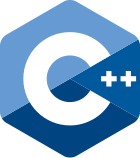







































While a program is running, bad things may happen. A file may not be in the expected place. A database server may be inaccessible. The Internet connection might go down. A math function may contain a bug, and return an invalid number.
In this section, we will discuss a number of different error handling strategies, and how they can be implemented in C++. The first way to deal with an error is the easiest, and is sometimes even acceptable:
On occasion, an error can simply be ignored. Let's say we are programming the Mars Rover. The vehicle is paused, waiting for a calculation to finish that will determine the next move it should make. If that calculation returns a nonsense value, perhaps the best thing to do is to continue to sit there, waiting for another caclulation to finish.
If ignoring the error is not a good idea, one may also:
Here, the idea is to return a value from a function that cannot possibly be correct, for instance, nullptr from a system call to allocate memory. The caller can then check for that error value. In C, this was the main error handling strategy. A lot of C code would look like this:
while ( (pFreeBlock == pLastBlock) && (ErrNo == FB_NO_ERROR) )
{...
do
{...
if ( pFreeBlock != NULL )
ErrNo = FB_LOST_BLOCK;
else
{...
if ( pNextBlock == NULL )
ErrNo = FB_BROKEN_CHAIN;
else
{...
}
}
} while ( pFreeBlock->IsInUse && (ErrNo == FB_NO_ERROR) )
}
(Code from http://syque.com/cstyle/ch10.4.htm)
This works, but a problem with this method is that, quite often, the lines of code devoted to checking for and handling errors become more numerous than those devoted to the task the program was created to accomplish. (No one creates a program just to handle its own errors!) This makes it hard for a reader to see what the program is "really" up to.
A second problem is what to do when the error code is recognized. It might seem obvious: "Tell the user something went wrong!" Well, that is fine for interactive terminal or GUI programs. But the vast majority of programs written every day do not have a "user" to whom they can easily output messages: instead, they are running inside a car engine, or a microwave oven, or a drone; or are serving web pages; or are doing batch processing. The best way to note an error in these cases might be to write to a log file, or to send a message to the manufacturer, or making a warning light on a dashboard go on, or... who knows what else? So let's say you are writing a math library and a call to log produces NaN as a result, perhaps because it was passed a negative number. What should your library code do? In general, if this is a general-purpose library, you have no way of knowing if there is a user present to whom you can present an error message, if a log file exists, or if perhaps the program should be terminated.
A third problem with returning error codes is... the programmer calling the function returning such a code might simply fail to check for the error return. For instance, the call to open a file for writing may fail, because the program does not have permission to write to that file. But the programmer could fail to check for the code signalling the open failed, and continue to try writing to the file (perhaps ignoring the errors produced by those write attempts as well), resulting in a program that fails to record important results.
In order to solve the problems involved in returning error codes, exceptions were developed. Exceptions:
These properties are achieved by having the code detecting an error raise or throw an exception. This halts execution of the currently executing function, and begins a search up the call stack to find a suitable handler for the exception. If main() is reached without finding such a handler, then the program is terminated, generally with a message indicating what exception caused the program to stop. That procedure means that exceptions cannot be ignored, since, in the worst case, if they are not handled elsewhere, they will halt the program in which they occur.
Furthermore, because they bubble up the call stack, they can be handled at whatever level is deemed appropriate, and there is no need to check for error return codes all over one's program. What's more, this means the response to an error can be decided at the most appropriate level of the code. An exception thrown from a low-level math function can produce an error dialog box in a program that "knows" it is running in a GUI, or a log message in a web server, or a dashboard warning light going on in a program running in a car engine.
This all sounds great! So is there any downside to using exceptions? Yes! They:
But wait! That sounds just like the strengths of exceptions! And that's the point: sometimes we might like to ignore errors, and ensuring that control does not leap between levels of a program was the whole point of structured programming. An instance of the first point is offered by the C++ code used in the Mars Rover software: NASA forbid the use of exceptions, since an unhandled exception simply stopping the operation of the rover was a worst-case scenario: the rover sitting unresponsive on Mars was not a good thing!
Our file exceptions.cpp illustrates some features of C++ error handling.